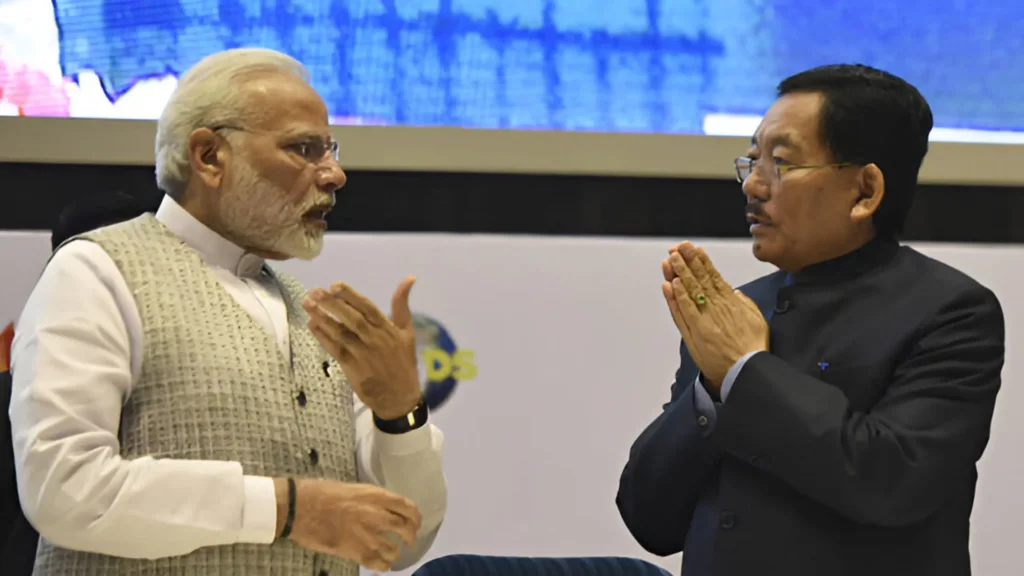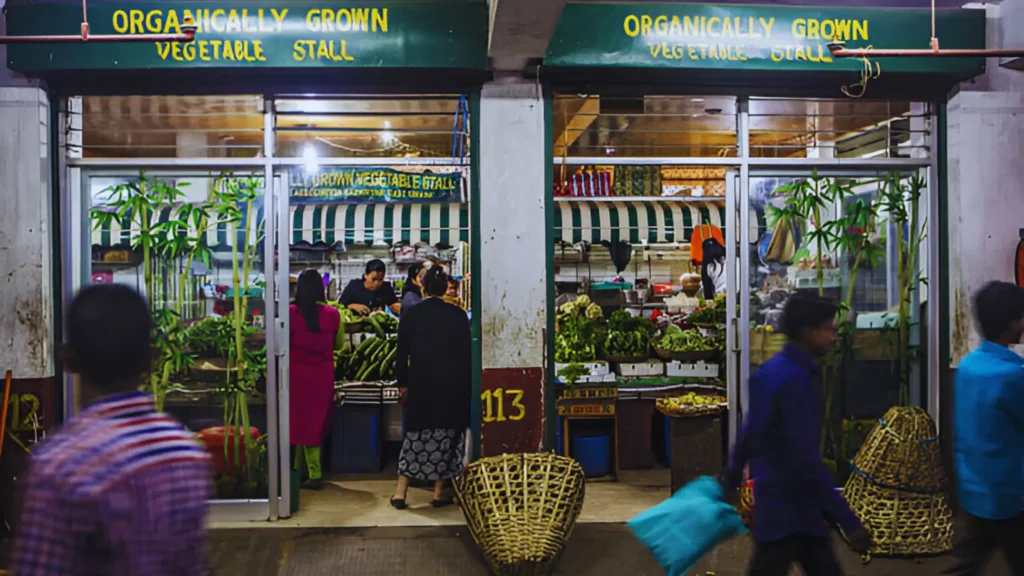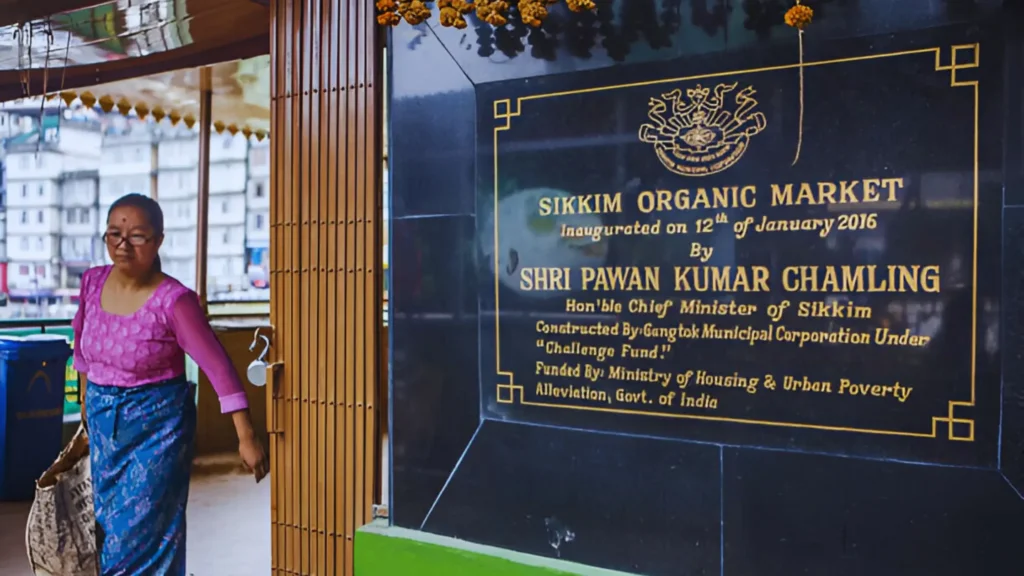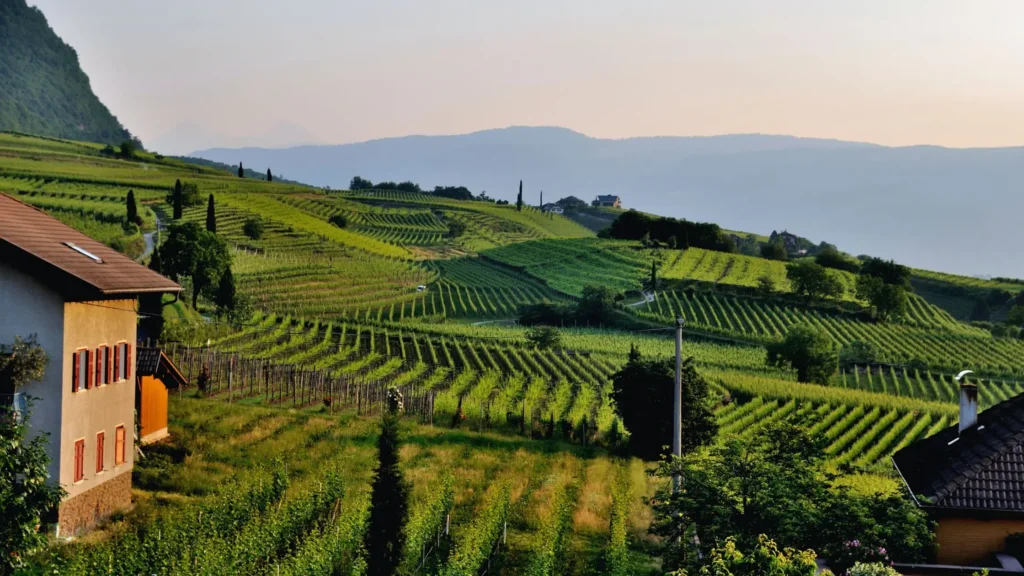Long before organic farming was a trend and the green revolution was a need, the small Indian Himalayan state of “Sikkim” made its place to be the first organic state of India as well as the world.
The feat was hard to achieve. Initially, from the proposal being questioned to gradually receiving support from local farmers, Sikkim made its ambitious project possible in 13 years.
First Step Toward Making Sikkim an Organic State of India

Sikkim’s organic mission was implemented between 2003 and 2016, structured in three phases by then Chief Minister Pawan Kumar Chamling.
Conceptualisation Phase
> During this phase, the government developed a comprehensive Action Plan.
> The Sikkim State Organic Board was formed.
Preparatory Phase
> The Sikkim government reduced fertiliser subsidies and later banned them fully.
> Then, to take this visionary mission forward, the government adopted 100 bio-villages from 2004 to 2009 for conducting organic farming demonstrations and trials.
> Later, farmers were trained and assisted.
Implementation Phase
> The year 2010 marked a turning point, as the state rolled out the Sikkim Organic Mission with an ambitious goal to transform Sikkim into India’s first fully organic state by 2015.
> In 2016, Sikkim’s vision turned into a reality. Over 75,000 hectares of farmland were certified as organic through joint efforts of the state and its partner agencies.
But the Journey Was Not That Smooth

In the beginning, there was a lot of apprehension among farmers. In some villages, they refused to take up organic farming due to low crop yields.
Later subsidies from the government, along with continuous training and education, kept the mission of organic farming moving.
Now, Sikkim’s transition to a fully organic state of India has benefited over 66,000 farmers. This has not only increased the income but also the life expectancy of its entire population.
In 2016, Sikkimese people lived ten years longer than in 1990. All credit goes to its organic farming.
Besides, the state’s success isn’t just in cultivation. It has now created an organic ecosystem from production to certification, marketing, and consumption. Organic retail outlets, eco-tourism initiatives, and organic food festivals have contributed to shaping a new economic and cultural identity for the state.
Addressing a news conference at the Chamber of Deputies in the Italian Parliament, Pawan Kumar Chamling said;
Based on my long experience and association with the Organic initiative, I can tell you in all good faith and confidence that a 100 percent organic world is possible. If we could do it in Sikkim, there is no reason why policy makers, farmers, and community leaders cannot implement the same elsewhere in the world.
Statements of this nature serve as a catalyst, motivating states across the country to embrace bold initiatives and make them happen.
Recognition by the World

Sikkim’s dedication to going organic has not only garnered attention from India but also all across the world.
Shri Pawan Kumar Chamling, Chief Minister of Sikkim, was conferred the prestigious “Sustainable Development Leadership Award” by His Excellency (HE), Shri Pranab Mukherjee, President of India, during the World Sustainable Development Summit (WSDS).
In 2018, the state received the prestigious UN FAO’s (Future Policy Gold Award). The award is also referred to as “Oscar for best policies”. It was the first time that any Indian state received such a celebrated award.
Wrapping Up
Sikkim’s remarkable journey of becoming an organic state of India is a reminder that strong commitment can transform even the boldest goals into achievements.
Today, the state stands as a model for the world, showing that environmental stewardship and economic growth can walk hand in hand.
As the world struggles with the consequences of chemical farming, climate change, and food insecurity, Sikkim offers a hopeful path forward. One where healthy soil, safe food, and a cleaner future are within reach.
